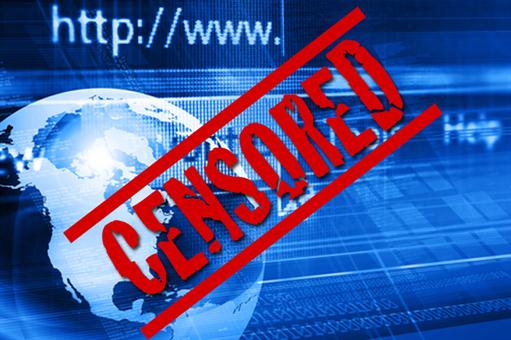
The internet went dark in Syria last week. Although media reports blamed the outage on a fault in optical fiber cables many in the tech community were skeptical. After all, it’s not the first time Syria shut down the internet in an attempt to prevent protestors from using social media to coordinate and share with the outside world. According to the the Electronic Frontier Foundation:
Earlier today, we learned that Internet traffic between Syria and Western online services had plummeted drastically, indicated that the country’s connection to the wider Internet had been shut down. Reports from Renesys and Google confirmed the routes into Syria had been withdrawn, implying either a massive infrastructure cut, or a deliberate silencing of online communication. […] This is not the first time Syria has suffered an Internet shut down. In November 2012, Syria suffered a severe Internet black out. And as the violence in the region has escalated, we’ve documented campaigns of targeted malware attacks against Syrian activists. Syrians have been suffering an unprecedented humanitarian crisis as the uprising against the Assad regime turned into a violent civil war encompassing the entire country.
Prior to the renewed debate about Benghazi dominating the FP news-cycle the top question on the foreign policy agenda was, should the U.S.intervene in Syria? Of course, the U.S. is already providing non-lethal assistance, but has so far balked at directly providing weapons to the Syrian rebels. This appears to be a prudent policy as the rebels are a disparate group with many not aligned with U.S. interests. Still, the question of providing further support for the rebels remains far from settled.
The internet outage last week reminded me that although the U.S. is not directly providing the support the Syrian rebels want, the U.S. is doing what it can to make sure the internet remains an open channel of communication for them. After the Arab Spring demonstrated the ability of local despots to control the internet and use it as a tool for the surveillance and monitoring of protestors, the U.S. took steps to prevent American companies and individuals from providing the technology that would enable such crackdowns. President Obama signed an executive order in April 2012 prohibiting Americans from providing, “information and communications technology that facilitates computer or network disruption, monitoring, or tracking that could assist in or enable serious human rights abuses by or on behalf of the Government of Iran or the Government of Syria.” Sanctions and visa bans are provided as punitive options for those who violate the order.
This executive order is necessary because, although we may not want to admit it, U.S. companies have been among those supplying technology to repressive governments. The Wall Street Journal has reported that McAfee, part of Intel, has provided content-filtering software used in Bahrain, Saudi Arabia and Kuwait. Do you suppose that companies such as McAfee could be dissuaded from such disreputable practices merely by naming and shaming? I doubt it.
Although the U.S. has not yet decided on further support for the rebels in Syria, it is encouraging to know that American companies and citizens are now prohibited by law from providing the technological support the Assad regime uses to manipulate and control the internet.